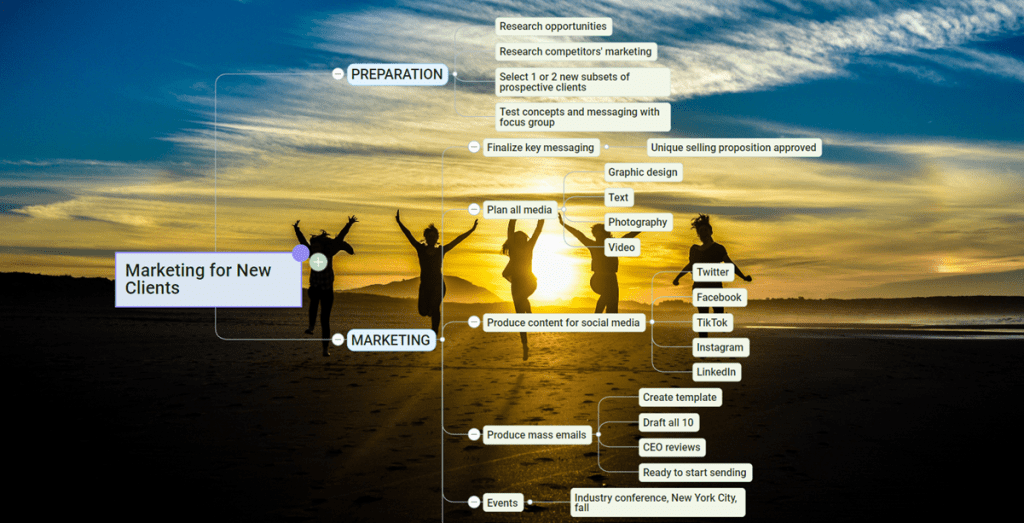In a world brimming with information overload and constant distractions, finding effective ways to organize thoughts, brainstorm ideas, and boost productivity is paramount. Amidst this chaos, mind maps emerge as a beacon of clarity and innovation, offering a structured yet flexible approach to problem-solving and idea generation. In this blog post, we’ll delve into the concept of concept maps and explore their myriad benefits in enhancing creativity, improving memory, and streamlining productivity.
Understanding Concept Maps
At its core, a mind map is a visual representation of ideas, concepts, or tasks, structured around a central theme or topic. Branching out from this central node are interconnected subtopics, forming a web-like structure that mirrors the way our brains naturally organize information. Unlike traditional linear note-taking methods, mind maps embrace the nonlinear nature of thought processes, allowing for free-flowing associations and creative connections.
Benefits of Concept Maps

1. Enhanced Creativity
Concept maps serve as a catalyst for creativity, encouraging divergent thinking and sparking new insights. By visually mapping out ideas and relationships, individuals can explore unconventional connections and uncover novel solutions to complex problems. The nonlinear format of mind maps liberates thinking from the constraints of linear logic, fostering a more expansive and imaginative approach to problem-solving.
2. Improved Memory Retention
Research suggests that the combination of visual and spatial elements in concept maps enhances memory retention and recall. The visual nature of mind maps engages multiple cognitive functions, making information more memorable and easier to retrieve. Additionally, the hierarchical structure of mind maps facilitates organization and categorization, reinforcing connections between related concepts and aiding in long-term retention.
3. Clarity and Organization
One of the most notable benefits of concept maps is their ability to distill complex information into a clear and organized format. By breaking down large ideas into smaller, more digestible components, mind maps provide a holistic overview while maintaining a sense of structure. This clarity not only facilitates understanding but also serves as a roadmap for action, helping individuals prioritize tasks and stay focused amidst distractions.
4. Accelerated Learning
Concept maps are valuable tools for accelerating the learning process, whether it’s studying for exams, mastering new skills, or assimilating information from various sources. By condensing key concepts into visual frameworks, mind maps enable efficient information processing and comprehension. Moreover, the interactive nature of mind maps allows learners to actively engage with the material, reinforcing learning through active recall and self-assessment.
Practical Applications
The versatility of mind maps extends across diverse domains, from education and business to personal development and creative pursuits. Here are some practical applications of mind maps:
- Project Planning: Use mind maps to outline project goals, identify tasks, and allocate resources effectively.
- Brainstorming: Generate and organize ideas collaboratively, harnessing the collective creativity of a team.
- Studying and Note-taking: Summarize lecture notes, textbooks, and research papers in a concise and visually engaging format.
- Problem-solving: Analyze complex problems, identify root causes, and explore potential solutions through structured brainstorming.
- Goal Setting: Visualize goals, break them down into actionable steps, and track progress over time.
Conclusion
In an era defined by information abundance and cognitive overload, mind maps offer a refreshing antidote, empowering individuals to navigate complexity with clarity and creativity. By embracing the nonlinear nature of thought and harnessing the power of visual thinking, mind maps unlock new pathways for innovation, learning, and productivity. So why not grab a pen and paper, or fire up a mind mapping software, and embark on a journey of exploration and discovery? The possibilities are limited only by the bounds of your imagination.


